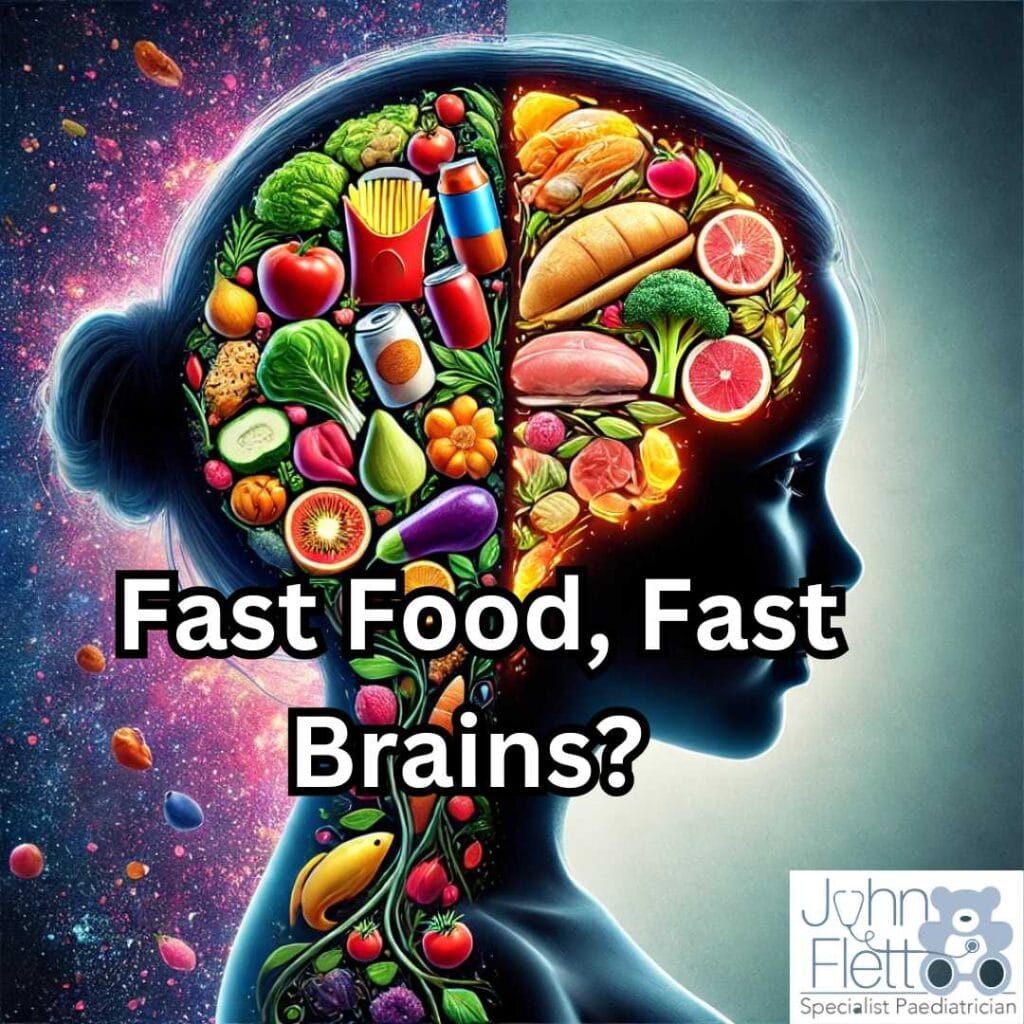Fast Food, Fast Brains? The Surprising Link Between ADHD, Autism, and Maternal Diet

Imagine you’re building a house. The foundation is critical—any weakness early on affects the entire structure. Now, think of a child’s brain as that house, and the “building materials” come from what the mother eats during pregnancy.
Recent research has suggested that when expectant mothers consume a diet high in processed foods, unhealthy fats, and refined sugars—often called a Western diet—there’s an increased risk of their child developing ADHD or Autism Spectrum Disorder (ASD). But is it really that simple? Let’s break it down.
The Science: Can Food Really Shape a Child’s Brain?
A large study, covering over 60,000 mother-child pairs, found a strong association between maternal diet and the likelihood of children developing ADHD or ASD. The numbers are striking:
- A 66% increased risk of ADHD in children whose mothers ate a high-fat, high-sugar Western diet.
- A 122% increased risk of ASD in these children.
- The first and second trimesters seemed to be the most critical periods for this effect.
This research suggests that just like a construction project, what goes into the blueprint early on can determine future outcomes. A diet loaded with processed foods and sugar may create a “rickety scaffold” for the developing brain, leading to problems in focus, impulse control, and social communication later on.
But before we jump to conclusions, we need to dig deeper.
The Western Diet: A Recipe for Risk?
The Western diet is infamous for its empty calories and high-energy, low-nutrient content. It often includes:
🍔 Fast food – Burgers, fries, fried chicken, and deep-fried snacks.
🥤 Sugary drinks – Sodas, fruit juices with added sugar, and energy drinks.
🍩 Highly processed snacks – Cakes, biscuits, crisps, and sweetened cereals.
🧀 Saturated fats and additives – Found in processed meats, microwave meals, and junk food.
The problem? These foods are often inflammatory and lack key nutrients like omega-3 fatty acids, iron, zinc, and choline, which are crucial for brain development.
On the flip side, diets rich in whole foods, fruits, vegetables, and healthy fats support neurodevelopment. Think of it like fueling a car—would you put cheap, dirty petrol in a high-performance vehicle? The brain needs premium fuel to function at its best!
But Wait—Is It Just the Diet?
Now, here’s where things get tricky.
We know that ADHD and ASD have strong genetic links. If a mother has ADHD, she’s more likely to eat an unhealthy diet (due to impulsivity, cravings, or difficulty with planning meals). That same genetic predisposition could increase the risk of ADHD in her child—independent of what she eats.
The study authors did attempt to control for genetics, but there’s still a missing piece of the puzzle:
🔬 We haven’t identified all the genes responsible for ADHD and ASD.
🔬 The study didn’t directly assess ADHD symptoms in mothers, which could be a key factor.
So while diet appears to contribute to risk, we can’t yet say it’s the sole cause. It’s like noticing that children who grow up in houses with books tend to be better readers—are the books responsible, or is it the parents’ influence?
What Can Teachers and Parents Do?
While the science is still evolving, we don’t have to wait for a final answer to make positive changes. As educators, caregivers, and parents, we can:
✅ Encourage balanced diets for expectant mothers – Schools, communities, and families can help spread awareness about brain-boosting foods.
✅ Incorporate nutrition education in schools – Teaching kids about healthy food choices can set them up for success.
✅ Advocate for better school lunches – Many children consume half their daily calories at school, so ensuring nutritious meals is crucial.
✅ Foster healthy eating habits at home – Cooking together, limiting processed foods, and encouraging whole foods can make a difference.
✅ Support children with ADHD and ASD holistically – A nutritious diet can help, but so can structured routines, sleep hygiene, and physical activity.

Responses